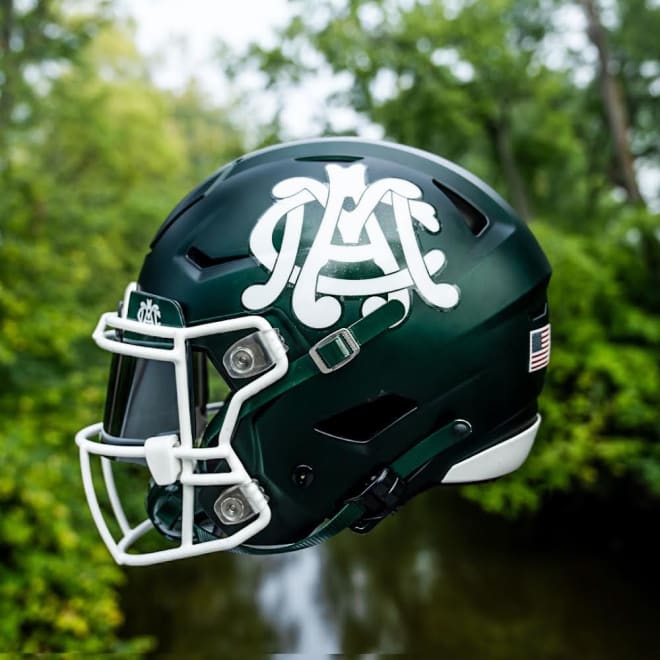Michigan State University football has a storied history marked by excellence, triumphs, and unforgettable moments on the gridiron. From its early beginnings to becoming one of the most respected programs in college football, MSU has consistently demonstrated its prowess on a national level. The program's national championships stand as a testament to the dedication, talent, and hard work of players, coaches, and staff over the decades. In this article, we will delve into the achievements of Michigan State University football and explore what makes it a powerhouse in the world of collegiate sports.
The journey of Michigan State University football is not just about winning games; it’s about building traditions, creating legends, and inspiring future generations. With each national championship, the university cements its place among the elite programs in college football. Fans around the country recognize the green and white as symbols of resilience, determination, and excellence. This legacy continues to grow as new players and coaches add their own chapters to the story of MSU football.
As we look back at the history of Michigan State University football national championships, we uncover the stories behind the victories, the challenges faced, and the triumphs achieved. From legendary coaches to standout players, every piece of the puzzle contributes to the overall success of the program. Join us as we explore the rich history of MSU football and its impact on the sport and beyond.
Read also:Why Todays Calvin And Hobbes Comic Continues To Inspire Generations
What Defines Michigan State University Football National Championships?
Michigan State University football national championships are more than just titles; they represent the culmination of years of hard work, strategic planning, and unwavering commitment. Each championship is a milestone that highlights the program’s ability to compete at the highest level and consistently deliver results. The championships serve as benchmarks of excellence, setting a standard for future teams to aspire to. But what exactly defines these national championships? Is it the talent of the players, the leadership of the coaches, or the support of the fans?
How Many Michigan State University Football National Championships Have Been Won?
Throughout its history, Michigan State University football has claimed several national championships, each one etched into the annals of college football history. The program’s first national championship came in 1952, followed by another in 1965 and 1966. These victories were achieved under the guidance of legendary coach Duffy Daugherty, whose vision and leadership propelled the team to greatness. But the question remains: how many Michigan State University football national championships have been won, and what does this number signify in the broader context of college football?
Who Are the Key Players Behind Michigan State University Football National Championships?
Behind every Michigan State University football national championship are the key players who have made significant contributions to the program’s success. From legendary quarterbacks to dominant defensive linemen, these athletes have left an indelible mark on the sport. Their skills, dedication, and passion have been instrumental in leading the team to victory. Let’s take a closer look at some of the standout players who have played pivotal roles in Michigan State University football national championships and explore their impact on the program.
What Role Do Coaches Play in Michigan State University Football National Championships?
Coaches play a crucial role in shaping the success of any football program, and Michigan State University is no exception. The leadership, strategy, and guidance provided by coaches are essential components of achieving national championships. Legendary figures such as Duffy Daugherty and Nick Saban have left lasting legacies at MSU, guiding the team through challenging seasons and leading them to victory. How do coaches contribute to Michigan State University football national championships, and what qualities make them effective leaders?
Michigan State University Football National Championships: A Timeline of Success
To fully appreciate the achievements of Michigan State University football national championships, it’s important to examine the timeline of success. From the early days of the program to its most recent accomplishments, each championship represents a significant milestone in the history of MSU football. By exploring the key moments and events that led to these victories, we gain a deeper understanding of the program’s evolution and its place in college football history.
What Are the Challenges Faced by Michigan State University Football in Achieving National Championships?
While Michigan State University football has enjoyed tremendous success, the path to national championships is not without its challenges. Teams face intense competition, demanding schedules, and high expectations from fans and stakeholders. How do the Spartans overcome these obstacles and maintain their position among the elite programs in college football? By addressing these challenges head-on, MSU continues to build a legacy of excellence and achievement.
Read also:Experience The Thrill At Regal Cinemas Dulles Town
Michigan State University Football: Building a Legacy of National Championships
The legacy of Michigan State University football national championships is built on a foundation of hard work, dedication, and perseverance. Each championship adds to the program’s prestige and reinforces its status as a powerhouse in college football. As new players and coaches join the program, they inherit this legacy and are tasked with continuing the tradition of excellence. How does Michigan State University football ensure that its legacy of national championships endures for future generations?
Michigan State University Football National Championships: The Impact on Players and Fans
The impact of Michigan State University football national championships extends beyond the field, influencing the lives of players and fans alike. For players, winning a national championship is the ultimate achievement, a testament to their skills and hard work. For fans, it’s a source of pride and excitement, strengthening their connection to the program and the university. How do these championships affect the players and fans, and what role do they play in shaping the program’s identity?
What Does the Future Hold for Michigan State University Football National Championships?
As Michigan State University football continues to evolve, the future holds exciting possibilities for achieving more national championships. With new talent emerging and innovative strategies being developed, the program is well-positioned to compete at the highest level for years to come. What does the future hold for Michigan State University football national championships, and what steps are being taken to ensure continued success?
Table of Contents
- What Defines Michigan State University Football National Championships?
- How Many Michigan State University Football National Championships Have Been Won?
- Who Are the Key Players Behind Michigan State University Football National Championships?
- What Role Do Coaches Play in Michigan State University Football National Championships?
- Michigan State University Football National Championships: A Timeline of Success
- What Are the Challenges Faced by Michigan State University Football in Achieving National Championships?
- Michigan State University Football: Building a Legacy of National Championships
- Michigan State University Football National Championships: The Impact on Players and Fans
- What Does the Future Hold for Michigan State University Football National Championships?
In conclusion, Michigan State University football national championships represent the pinnacle of achievement for one of the most respected programs in college football. Through the dedication of players, coaches, and fans, the Spartans continue to build a legacy of excellence and inspire future generations. As we look to the future, the possibilities for continued success are limitless, and the program remains committed to maintaining its position among the elite in college football.


